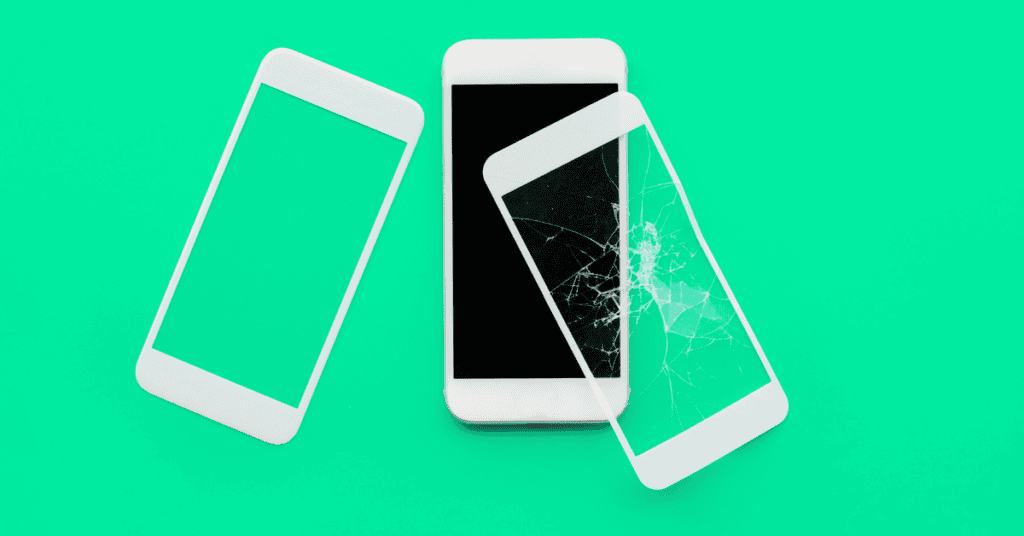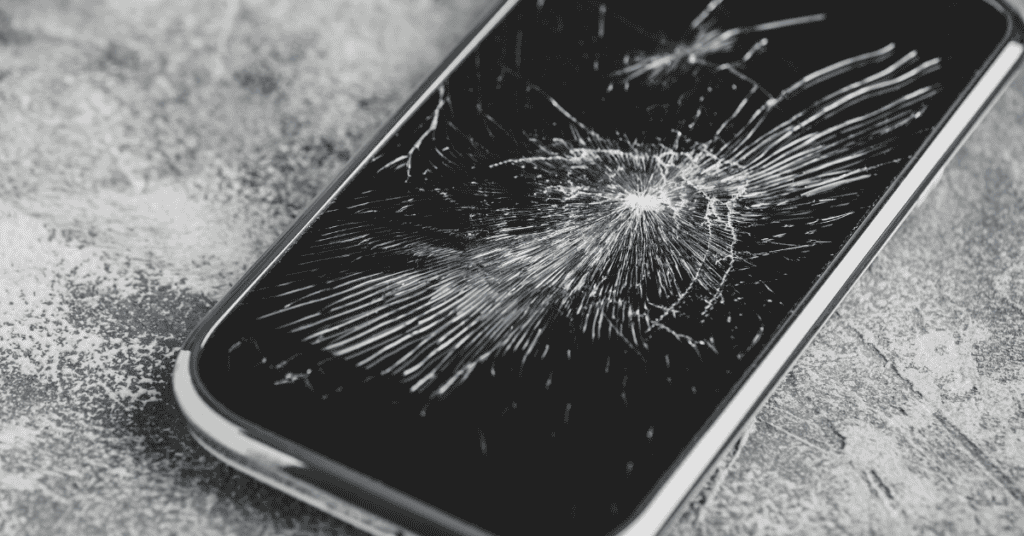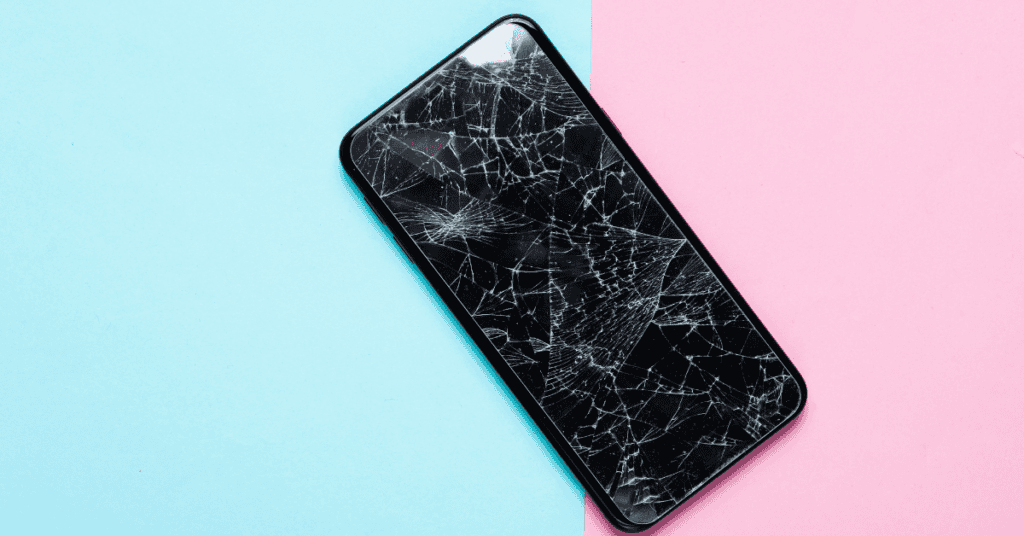We’ve all cracked our phone screens once or twice, haven’t we?
Statistically speaking, the longer we are smartphone users, the higher the chances that we’ll drop our devices in a careless moment- only to be horrified to discover an unsightly new crack blighting the screen!
But, if you’re lucky and are still able to use your phone with only a minor crack developing, you may have wondered if it would be a good idea to try to hide it behind a privacy screen protector.
So, the question is: Will a privacy screen protector hide cracks?
We have some good- and bad- news for you.
A privacy screen protector will not entirely hide cracks, but it can minimize minor cracks’ visibility to a great deal.
Plus, it will help to prevent the spread of further damage- so it really is a sound idea all around.
Keep on reading as we delve into the specifics of privacy screen protectors and what they can do for your phone’s display!
Will A Privacy Screen Protector Hide Scratches?

To understand whether a privacy screen protector can hide cracks or scratches, it’s important to first take a look at their basic functions.
Just like other display protectors, a privacy screen protector helps to keep your phone’s screen scratch-free and will help to cover up already-present cracks.
A privacy screen of course has one added advantage over other normal tempered glass screen protectors- it protects the information on your screen from the nosy people standing nearby!
How does that security feature work, exactly?
Well, a privacy screen protector comes with an additional layer that restricts viewability of the screen except from one specific angle.
This means that only the person holding the phone can see the digital display of the screen!
So, if you have a bystander wanting to sneak a cheeky peek, he would have to be standing within the same specific viewing angle as you or directly facing the screen.
Thanks to this fantastic feature, you can safely use your phone publicly without having to worry about a close proximity security breach.
The same will apply for the scratches on your screen, as these too will only be visible at a specific angle. Therefore, it is unlikely that anyone other than you will know that they’re there (and you may even forget about them yourself!).
However, remember that the scratches will not really “disappear”. Instead, the cover effectively masks them, making the cracks almost unnoticeable.
Therefore, there are really three benefits to putting a security protective screen on your phone:
- Securing personal information
- Protecting the screen
- Limiting the spread of already present scratches.
In a way, a privacy screen protector acts as a first aid kit for your device.
In any case, you will need to make sure that you choose the right type and material of privacy screen protector to suit your needs.
After all, there’s not much point buying a cheap, flimsy item that you will need to replace sooner rather than later!
How Do You Hide A Cracked Screen?

Cracks or scratches on an Android or iPhone screen can annoy every time they’re looked at, and can even impair the visibility of the display!
However, if the touchscreen is still usable and you can still operate the phone, perhaps it’s too early to ask for professional help in replacing the screen.
In the meantime, it’s perhaps a wiser step to take the more frugal route and save some bucks in the process.
So, refrain from opening up your phone, or searching for fancy tools online. Those methods can be quite tricky and require a significant amount of skill to perform.
In short: Leave the manual repair to the experts as a last resort!
Instead, we have recommended below a few incredibly effective DIY home remedies that can mask minor cracks or scratches on your screen.
First of all, categorize the damage that has occurred to your phone screen.
The damage can range from light scratches, to web-like patterns, to completely shattered shards of glass and a broken phone screen!
Remember that it is only possible to mask light scratches or a single minor crack at home.
So, let’s get to the first most commonly used and strangely effective method:
Wipe any dust off the screen with a clean cloth, and gently apply toothpaste on the cracks or scratches.
Carefully rub it out and let it rest for a few minutes. Then, wipe the screen with a clean cotton cloth.
Once this has been done, you’ll notice that the scratches are much less visible than before you applied the toothpaste! You can also try this with nail polish.
Another temporary fix for a cracked screen is of course putting a screen protector on (as we’ve already discussed above).
This works really well to stop the crack from spreading further.
However, it’s essential to use a matte glass or privacy protector if you want to really limit the visibility of the cracks.
Remember, these are just temporary, budget fixes, that won’t actually repair your screen’s display or touch screen functions.
However, they can return the shine and improve the appearance of the phone screen- up to a point, at least!
Why Do Screens Crack, And How Can You Avoid It?

Despite phones getting more expensive with each year, a lack of durability when it comes to phone screens remains one of the top smartphone issues that users face.
Do you ever wonder what the reason behind this is?
Well, there’s a straightforward explanation: It’s the result of a compromise between users’ aesthetic demands and mobile screen durability.
People want bigger screens and sleek designs that look elegant, and manufacturers have to comply with these desires if they want to see healthy sales figures.
As a result, we see mobile phones becoming larger and thinner. Sadly, this happens at the expense of durability. Such slim designs require the glass screens to be ultra-thin, making them extremely prone to damage no matter the material.
Still, phone manufacturers do keep experimenting and trying to make devices as tough and durable as they can be.
Most high-end phones have high-grade body material such as zinc and aluminum.
In these cases zinc adds strength to the aluminum frame, increasing shock-absorbency and protecting a phone from becoming misshapen if it is accidentally dropped.
However, sometimes even this zinc-aluminum combination fails to prevent mobile screens from cracking.
The reason is not lack of strength or poor manufacturing; instead, it’s elastic energy.
When your phone drops, the elastic energy in the glass converts to surface energy. This surface energy often overpowers the thin glass screen’s surface compression.
As a result, it cracks or shatters the screen entirely upon impact!
Cell phone manufacturers are constantly striving to develop more rigid and durable glass to prevent this from happening.
They are continuously researching to develop more robust mobile frames as well which can better withstand falls and absorb shocks.
Till then, we have the screen protector companies to look to as our saviors.
You can find a wide range of screen protectors for the majority of phone models. Additionally, several heavy-duty phone cases are also available.
These phone cases safeguard the devices, absorb shock well- and let phone owners show off their own personal style to boot!
In Summary
A cracked or otherwise damaged phone screen is a common problem that may prevent you from enjoying your device to the fullest.
While repair shops can charge you a few hundred dollars, a privacy screen protector is definitely a more affordable- albeit temporary- solution.
It can greatly minimize the visibility of minor cracks, and stop their spread at the same time.
On top of that, you can also try some temporary DIY fixes as we have detailed above.
However, a proper damage assessment is highly recommended before you experiment with anything!
Do not try anything if the screen is totally shattered, as this might damage the inner components and make the problem worse.
In case of minor scratches or a single crack, you can apply and scrub toothpaste or nail polish on the damaged screen area.
These solutions are both effective and easy to carry out. Still, you should always keep in the back of your mind that you won’t be able to totally heal even minor cracks with any screen protector or DIY method.
At the end of the day, if you really want to completely rid your screen of any scratches or blemishes, you will have to look into professional screen replacement services!
Screen protectors are one of them.
